Over ten years ago in 2012, International Detention Coalition (IDC) launched the Global Campaign to End Child Immigration Detention (the Global Campaign) at the 19th Session of the United Nations Human Rights Council in Geneva, Switzerland, supported by the Office of the High Commissioner for Human Rights (OHCHR). Later that year, the Committee on the Convention of the Rights of the Child issued key recommendations on the rights of children on the move, and highlighted IDC’s proposed model for a move to community-based alternatives for children.
With the simultaneous release of Captured Childhood, a report based on 70 interviews of children with lived experience of immigration detention across 11 countries, IDC set in motion a global movement grounded in the vision of a world that cherishes the humanity and dignity of children. Specifically, IDC campaigned to persuade the international community and governments that the immigration detention of children and their families is always a child rights violation and is never in the best interests of the child. IDC offered evidence of positive actions that States could take instead of depriving children of their freedom, and put forward practical and current evidence of a new perspective of rights-based alternatives where children and their families could live in non-custodial community-based settings while their immigration cases were being resolved.
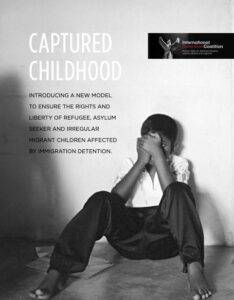
The Global Campaign joined opinions across diverse sectors in different parts of the world advocating for an end to immigration detention of children and families, with the message that immigration detention is never an appropriate place for a child and is never in the best interest of the child. The Global Campaign amplified the voices of children in detention through The Invisible Picture Show and showed the negative impact of even short periods of immigration detention on their mental health and development. The campaign called on States to step up to their international obligations, and ensure that all refugee and migrant children:
- Be treated first and foremost as children
- Be free
- Be looked after according to their best interests
- Live in freedom in the community with their parents or primary care-givers
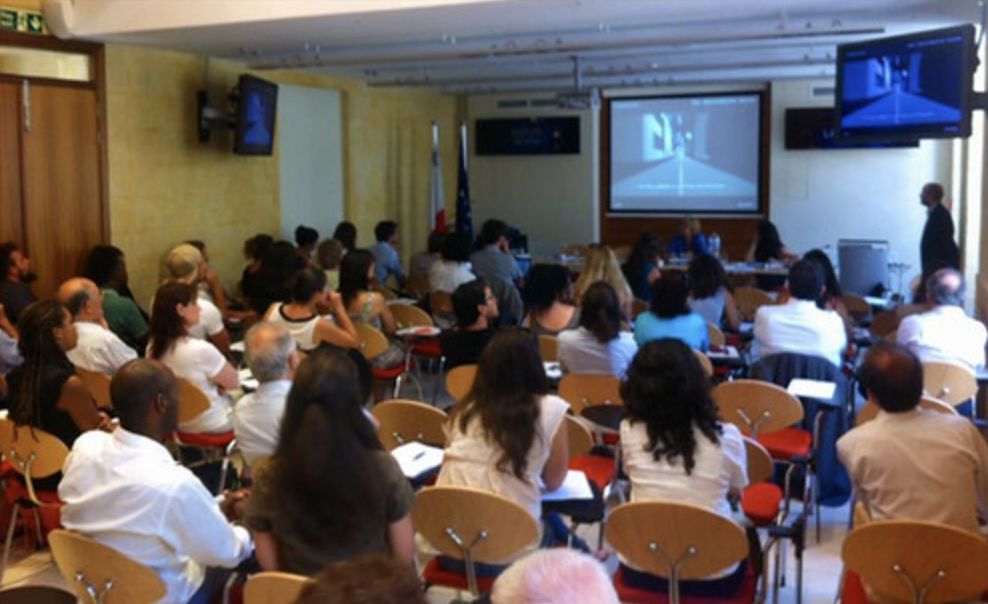
As the Global Campaign expanded, it became a platform for national campaigns and advocacy strategies calling for an end to the immigration of children around the world, most notably in Australia, Greece, Malaysia, Mexico, South Africa and Tanzania, as seen in the Global Campaign’s history.
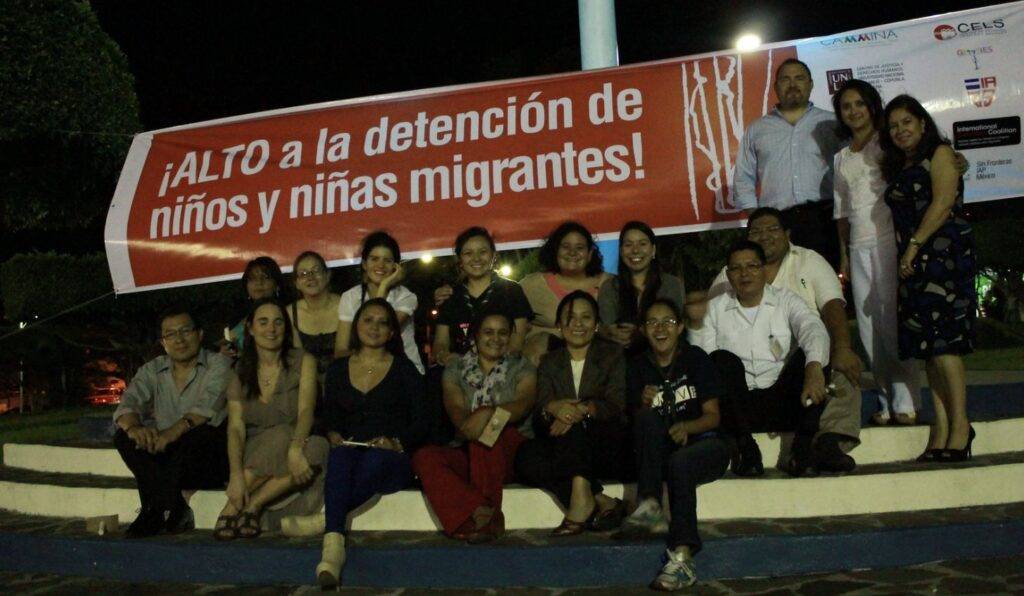
The Campaign also brought to light the issues of regional protection of children, for example family separation with detention and deportation procedures in the United States and the mass deportations of children and families to the Central American countries of Guatemala, Honduras and El Salvador.
IDC mobilised for States to adopt child-friendly, rights-based, humane, non-custodial and community-based alternatives to detention (ATD), as seen in this advocacy video developed in 2015 by IDC and partners A Tale of Two Children.
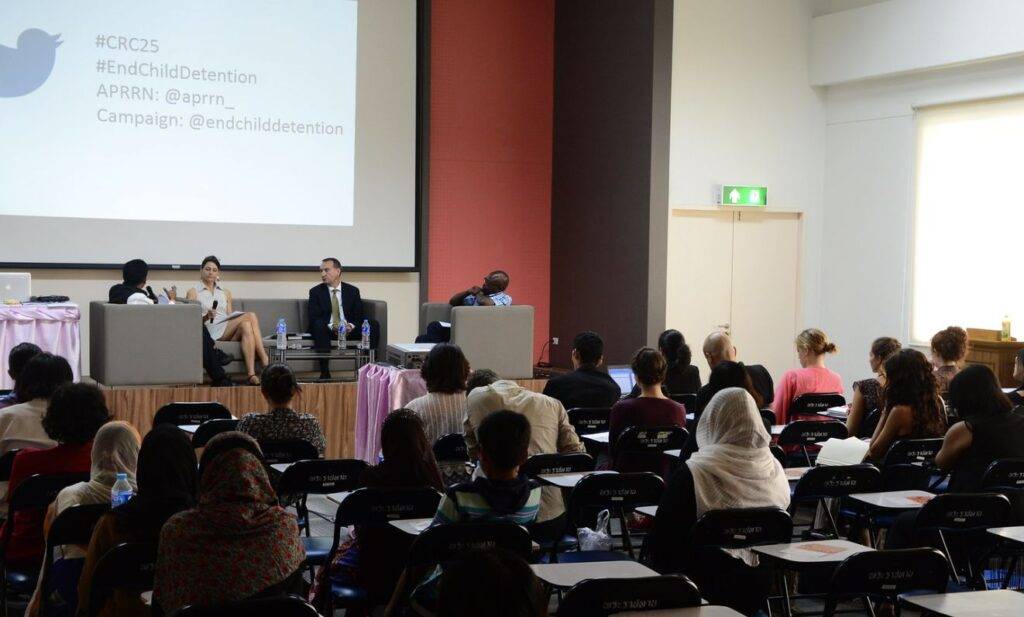
Following this, IDC also launched the NextGen Index in 2018, which served as a comparative tool to rank States on their progress in ending child immigration detention. The Index used a standard scoring framework to assess strengths, weaknesses, and key factors to ensure national migration management systems are sensitive to the needs of children and, importantly, avoid child detention.
The Inter-Agency Working Group (IAWG) to End Child Immigration Detention, an international alliance of civil society organisations and UN entities was key to convening global advocacy efforts from 2012 until 2018, with a critical turning point in the obligation of States being the adoption of the New York Declaration for Refugees and Migrants by the UN General Assembly in 2016. The subsequent negotiation process of the Global Compact for Migration and its adoption in 2018 represented a significant win by collective global advocacy efforts, in that it includes a clear commitment by States to work to end child detention by focusing on ensuring availability and accessibility of alternatives in non-custodial contexts.
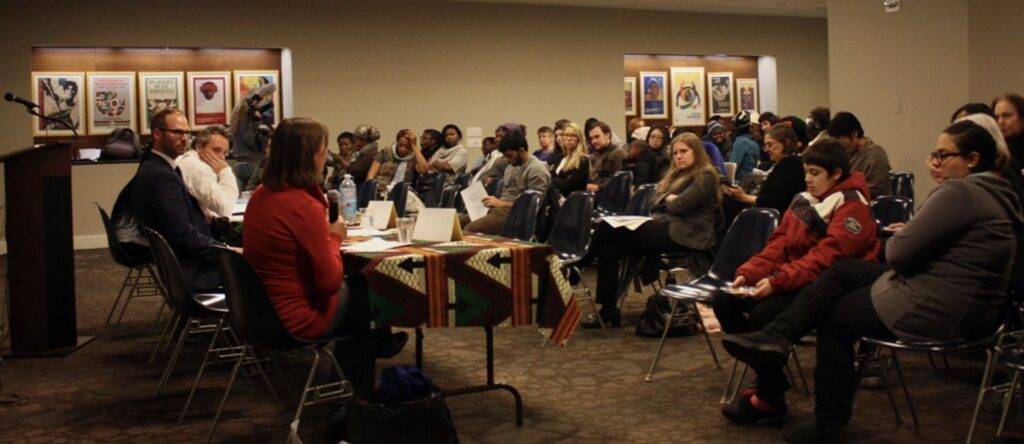
The 2019 release of the UN Global Study on Children Deprived of Liberty, to which IDC and its Global Campaign were key contributors, further added to the growing body of expert evidence on the harms of immigration detention on children and families, the extent of the practice and the solution-oriented approach based on alternatives.
Since 2018, the implementation of the Global Compact for Migration has provided a platform to concretely discuss and share national practice, legal and policy frameworks in global spaces. IDC pioneered efforts in this direction by leading regional and global discussions to develop a cross-regional peer learning platform on ending child immigration detention. This initiative led to the inclusion of peer learning as part of the UN Network on Migration Work Plan and the creation of the UN Network on Migration Working Group on Alternatives to Detention in 2019.
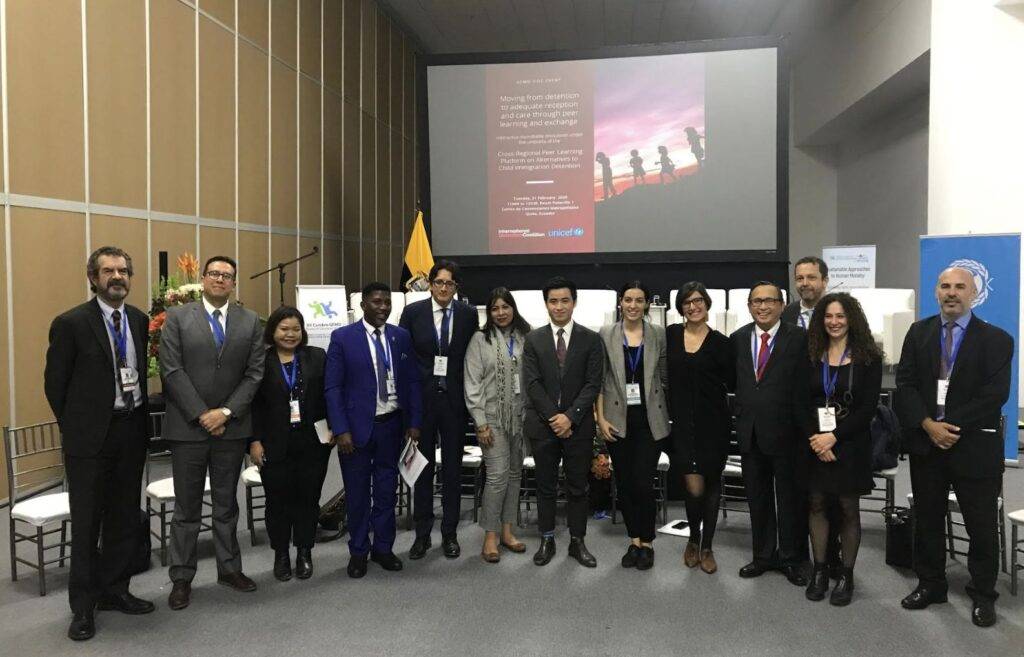
Since 2019, IDC co-leads the UN Network on Migration Working Group on Alternatives to Detention (ATD) alongside UNICEF and UNHCR, which prioritised supporting States in their work to end child immigration detention through global and cross-regional peer learning exchanges, organised in collaboration with the governments of Thailand, Colombia, Nigeria, Ghana, and Portugal. Recently the Working Group produced a global snapshot on Ending Child Immigration Detention, which highlights efforts in Mexico and Zambia, as well as an accompanying video. The Working Group is planning, together with key champion States, another peer learning exchange on ending child immigration detention in 2023.
We saw further international progress into 2021 with General Comment 5 to the International Convention on the Protection of the Rights of All Migrant Workers and Members of their Families, which called for child immigration detention to be fully eradicated globally. Child immigration detention was also a centrepiece of detention-related discussions at 2022’s International Migration Review Forum (IMRF), with some States making pledges to end the practice entirely.
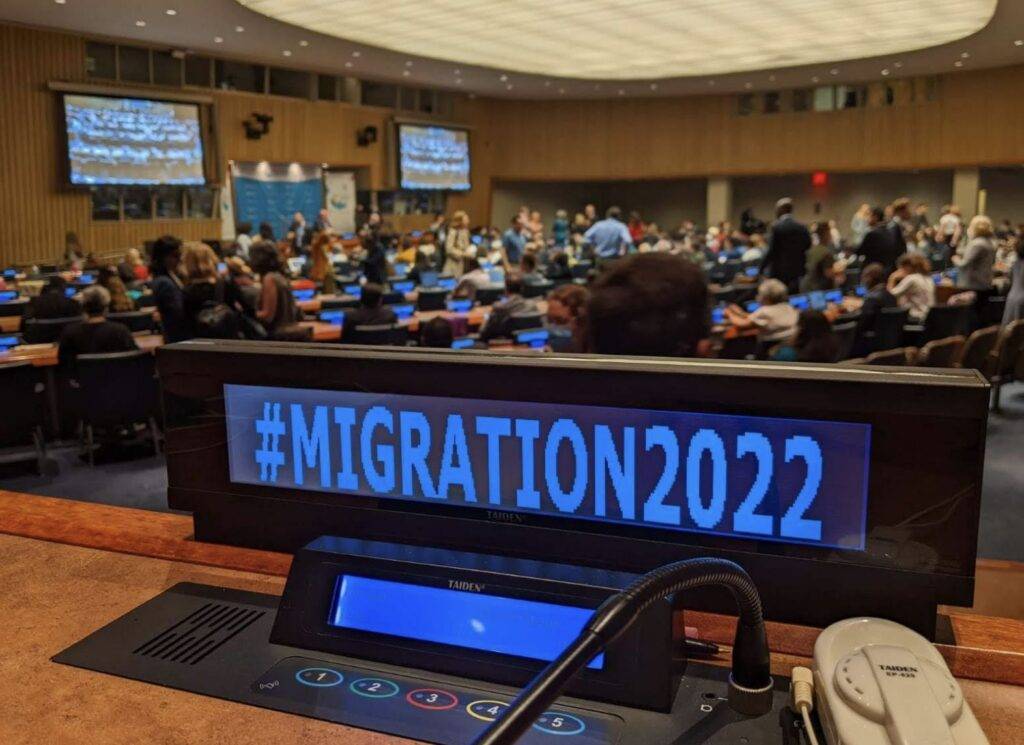
Where Change Happens
While the influence of global standards and political frameworks is a critical point of intervention for IDC, the core of our work exists at local and national levels, which is where change and impact is directly felt by communities at risk of immigration detention.
Following over a decade of coordinating multi-level advocacy, collaboration between civil society organisations, international partners, federal and local government authorities, and communities in Mexico, IDC was proud to be part of an historic political moment in 2020 when the Mexican Congress declared that immigration detention is no place for children.
This 2020 legislative reform that now legally prohibits the detention of children for immigration reasons came on the heels of a pioneering collaboration in joint advocacy by migrant and child rights groups in Mexico. This collaborative IDC work involved key partnerships with UNICEF and UNHCR, the Global Campaign, hearings before the Inter-American Commission on Human Rights, as well as clear recommendations to Mexico from the IACHR and the United Nations Committee on the Rights of the Child.
New legislation in 2014 established a national protection system for all children, along with regulations that specifically prohibited their confinement in immigration detention centres. This opened up opportunities for deeper IDC engagement with immigration authorities, providing technical advice for the development and implementation of the successful first ATD pilot for unaccompanied children. The pilot was developed and implemented in collaboration with SOS Children’s Villages (Aldeas Infantiles) and Covenant House (Casa Alianza), two organisations with strong community models and long-term experience working with children in Mexico. ATD initiatives demonstrated how children and families can be supported to live in the community as they participate in their ongoing migration or asylum process.
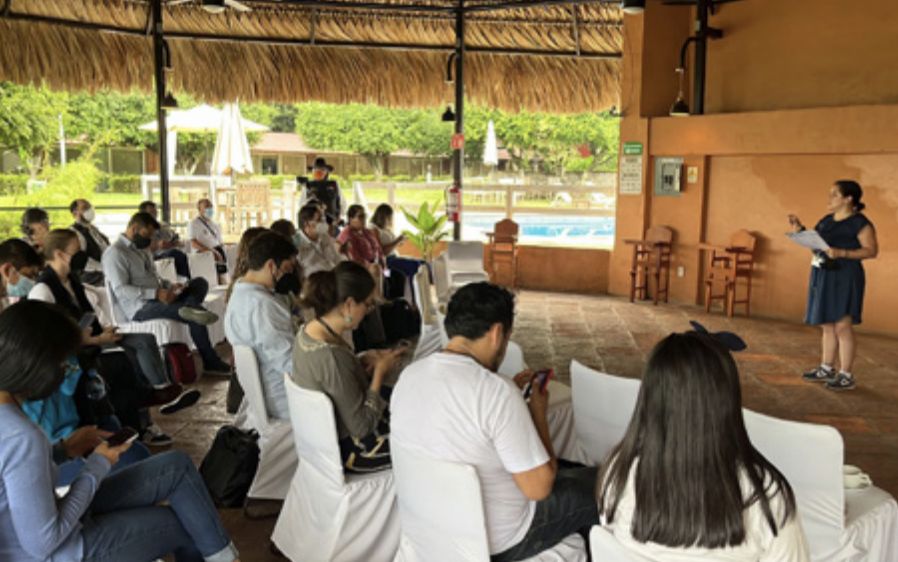
In the challenge to contribute towards effective implementation of the legal prohibition on child detention, IDC continues to prioritise engagement with the National Commission for the Protection of Migrant Children through capacity building and technical advice at federal, state and local levels. As a result of these efforts, we have seen the adoption of a National Protocol for the Protection of Migrant Children and we are currently working with state committees to develop and adopt local protocols that will serve to improve protection gaps and coordination among authorities at borders and along migration routes.
IDC believes it is important to continue to work on the ground, as close as possible to children and families with lived experience, local authorities and local civil society organisations, especially public and private shelters to strengthen community-based reception and care models. We also continue engagement with the Mexican legislature including training and harmonisation of the legal framework.
IDC Americas Regional Coordinator Gisele Bonnici states of these long-term efforts:
“Working side by side with our dedicated partners in Mexico, IDC continues to promote and support practical implementation of effective and appropriate community-based reception and care options for migrant and refugee children. Our goal is that no child, whether travelling accompanied or unaccompanied, be detained for any period of time in any type of space for immigration reasons.”
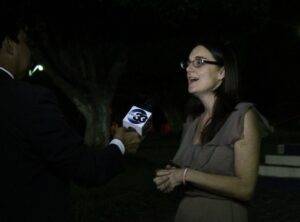
Similarly, in 2019, representatives of 7 Thai Government agencies signed the Memorandum of Understanding on the Determination of Measures and Approaches Alternatives to Detention of Children in Immigration Detention Centres (ATD-MOU), as well as Standard Operating Procedures (SOPs) to implement the MOU-ATD starting in September 2020. The MOU-ATD was a concrete outcome of a pledge made by Prime Minister Prayut Chan-o-cha during the 2016 Leaders’ Summit on Refugees at the United Nations in New York. At the summit, he publicly pledged to end the immigration detention of refugee and asylum seeking children in Thailand.
Following this huge political commitment, IDC has worked with local partners, such as HOST International to collate and strengthen the evidence-base that can be used to increase practical understanding of community-based, rights-based, and gender-responsive ATD to better protect children and their families in the context of migration; including, a Global Promising Practices on ATD which contextualised our design to the Thai context, a Community-based Case Management Programme Evaluation, as well as an accompanying Practices Guidelines on Community-based ATD in Thailand. Along with the Thai government Department of Children and Youth – Ministry of Social Development and Human Security (DCY) and UNICEF Thailand, IDC developed a government Monitoring, Evaluation, and Learning (MEL) framework in line with key international standards to track progress on the MOU-ATD implementation. The evaluation led by DCY aims to take place in 2023 as a collaborative effort of key stakeholders in Thailand.
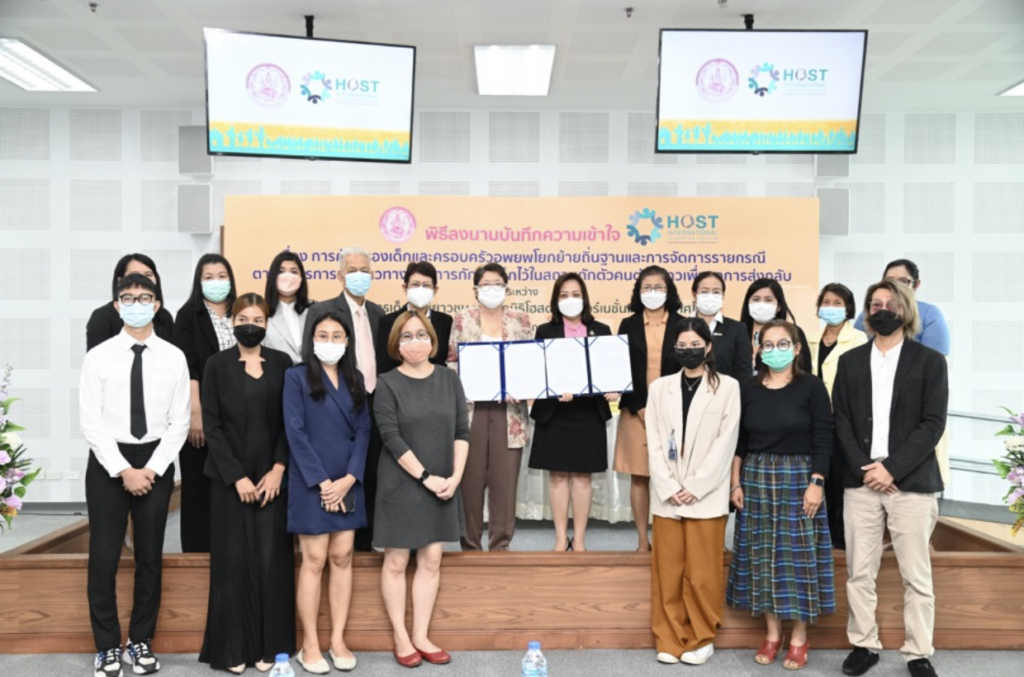
For several years now, IDC has seen our members and partners engaged in advocacy and service provision for children impacted by immigration detention. With IDC’s support, members in Thailand and Malaysia define strategies to end child immigration detention in their countries. These strategies have prioritised and coordinated efforts towards the ultimate goal of ending the immigration detention of children and their families.
IDC Southeast Asia Programme Manager Mic Chawaratt states of IDC’s efforts in Thailand:
“Political will, commitment to the best interest of the child, and multi-stakeholder collaboration have been the key drivers of advocacy efforts among Thai civil society, government partners, UN agencies, the diplomat community, academics, and people whose lives are impacted by immigration detention. I believe that one day immigration detention will no longer exist in my country, and people who migrate here will live with rights and dignity – which is IDC’s vision for the world.”
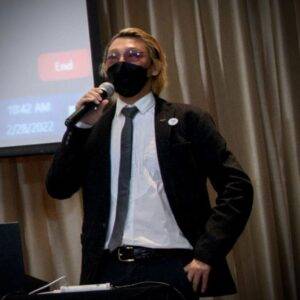
Additionally in the Asia Pacific region, the Ministry of Home Affairs in Malaysia officially launched an ATD pilot programme in February 2022 for unaccompanied and separated children following approval of the pilot by the Malaysian cabinet in 2021. This was a key milestone for IDC following a decade of ongoing advocacy that centred around an incremental and collaborative strategy alongside our members, the human rights commission (SUHAKAM) and UN agencies. The national campaign in Malaysia was originally spurred by the Global Campaign, and provided leverage and a space to engage a broad number of groups around the issue, while previously the discussion on this issue was severely limited. Now, the planning, development and implementation of the pilot is being supported by IDC partners SUKA Society and Yayasan Chow Kit.
Following this development, IDC continues to coordinate the End Child Detention Network Malaysia (ECDN), and brings members together to discuss strategy and collective advocacy efforts. IDC has also started a public engagement programme in Malaysia, including new initiatives focused on developing public and media engagement strategies on refugee and migrant rights.
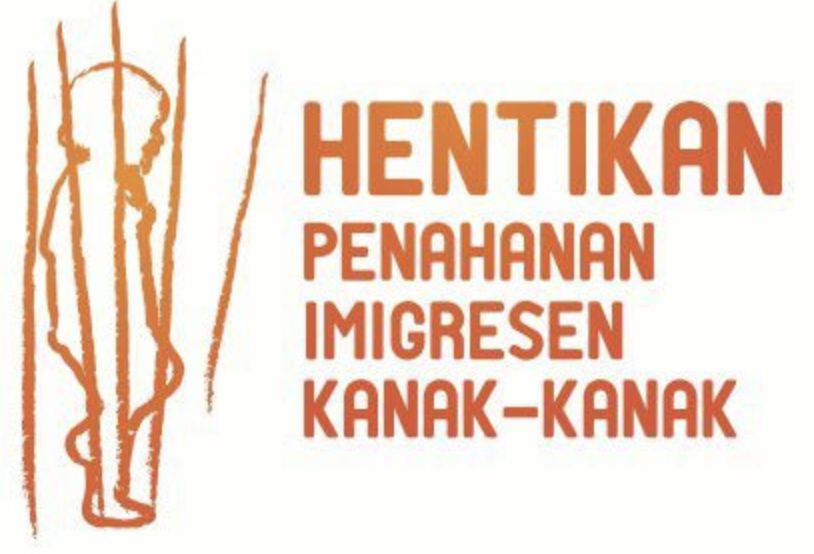
In the Middle East and North Africa (MENA) this year, and in partnership with UNICEF, IDC organised a series of online ATD trainings focused on screening, assessment, referral mechanisms of children, as well as case management and community placement options for children. IDC believes that these critical elements serve as a framework for identifying and developing rights-based ATD. This training series aims to strengthen the capacity of civil society organisations, as well as bring together a network of actors working in the field of ending child immigration detention across the region. The latest training in October 2022 was attended by 50 participants working on issues related to refugee and migrant children from more than 10 countries in the MENA region.
IDC has also carried out a mapping research with UNICEF on the current legislations, policies and practices with regards to child immigration detention in the MENA region. This led to the production of two policy briefs targeting governments; which aim to support sharing among governments in the MENA region, and to strengthen practices in line with the Convention on the Rights of the Child and the Global Compact for Migration (GCM). The mapping analysed trends and identified promising protection and care practices for refugee and migrant children with a focus on child-sensitive alternatives to custody across 9 countries in the MENA region: Djibouti, Egypt, Jordan, Lebanon, Libya, Morocco, Tunisia, Saudi Arabia, and Sudan.
In November 2022, IDC co-organised with UNICEF a regional workshop for 8 governments in the MENA region, to present and share promising protection and care arrangement practices for children on the move, from across the region and beyond, facilitating discussions and exchanges on common challenges, strengths, and proposed ways forward for their countries and across borders. The workshop highlighted key aspects from the child protection continuum from identification and referral to alternative care models specifically highlighting promising practices on child protection including child sensitive alternatives to custody.
In Europe, meanwhile, efforts have been ongoing to advocate for an end to child detention. The conditions set out in EU law, alongside the requirements of the European Convention on Human Rights and the case law of the European Court of Human Rights, make it clear that depriving children of their liberty is only permissible in exceptional circumstances. Despite this, however, at least 27 countries in the region still detain children. IDC has been working with civil society organisations across Europe to train policymakers, child protection experts, judges and lawyers on the legal requirements of states when it comes to ensuring alternative care arrangements for children. This has included working with the International Commission of Jurists to support the roll-out of a set of training materials on ATD for migrant children. In addition, the Belgian member of the European ATD Network – which IDC coordinates – has been implementing an ATD for families with children since 2020, working to ensure that children can live in the community while they and their parents work to resolve their migration status.
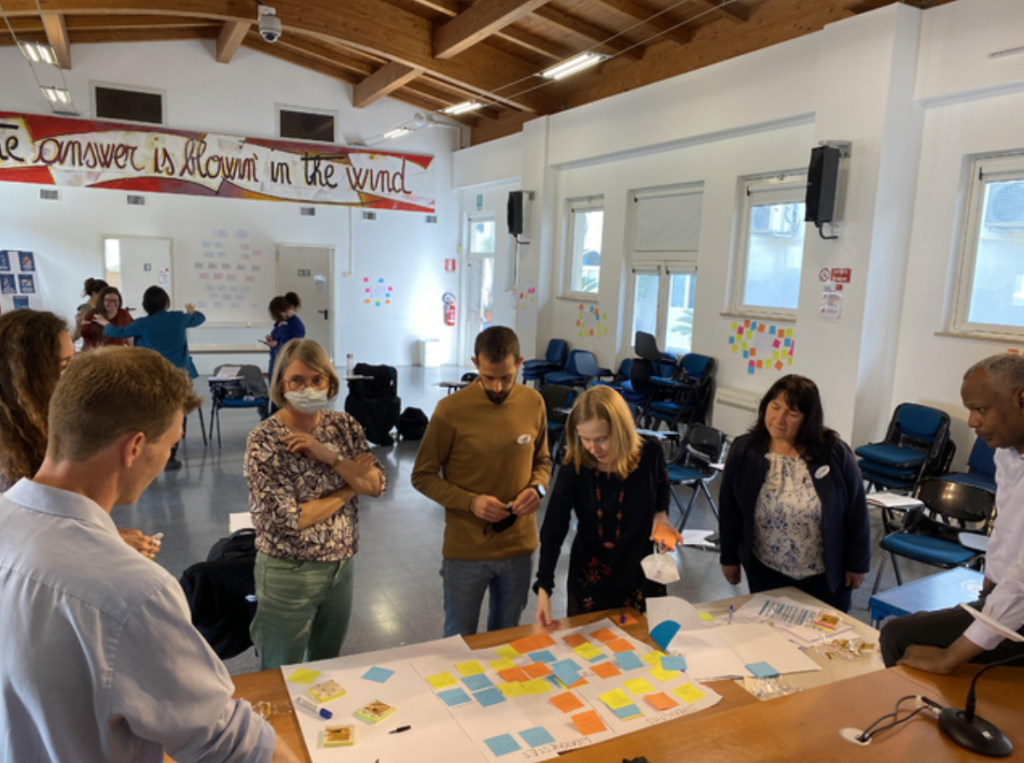
As with any major policy chance, progress often feels slow and can even appear to be moving backwards at times. The provisions for reception and border procedures set out in the new EU Pact on Migration and Asylum, for instance, are likely to result in a dramatic deterioration of the rights of people on the move, including children. Yet there remain signs of hope; Germany’s pledge at the 2022 IMRF to end immigration detention of children, and indications from a number of governments that they are working to integrate children on the move into mainstream protection systems, show that there is still space to move forward with this agenda.
Lived Experience at the Centre
In 2012, the UN Committee on the Rights of Child declared that immigration detention is a violation of a child’s rights. This declaration represented a clarity of language that began a shift in international law, and the shift was made following a performance by five young advocates who IDC partnered with to share their experiences of detention, as well as their proposed solutions, at the UN. They curated a theatre piece called Hear Our Voices, and powerfully stood before global policy makers and academic experts to stake their claim on this issue. Together, they moved the dial on child immigration detention worldwide.
IDC continues to believe that people with lived experience of detention need to be involved in shaping the policies that directly impact their own lives and communities. IDC recently co-organised the Children and Youth Affected by Migration-Led Advocacy Workshop, which involved conducting youth engagement training for 43 different local partners, as well as leadership and advocacy training for 175 migrant and refugee children and youth in Thailand. The youth leaders were then invited to share a statement directly with policy-makers in April 2022 at a forum attended by Thailand’s Representative to ASEAN Commission on the Promotion and Protection of the Rights of Women and Children (ACWC), representatives from the Thai government, as well as international organisations and NGOs.
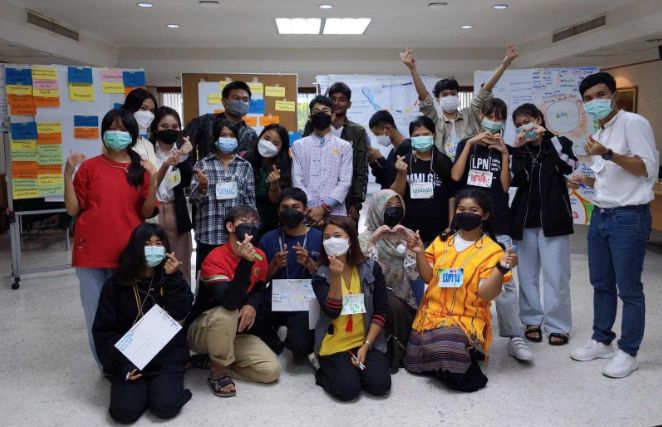
Further in Malaysia, IDC works with Akar Umbi, a local NGO, to conduct a leadership programme called the Azalea Initiative with a group of young refugee women in Kuala Lumpur. The programme’s goal is to support their empowerment, and build their capacities as changemakers within their communities.
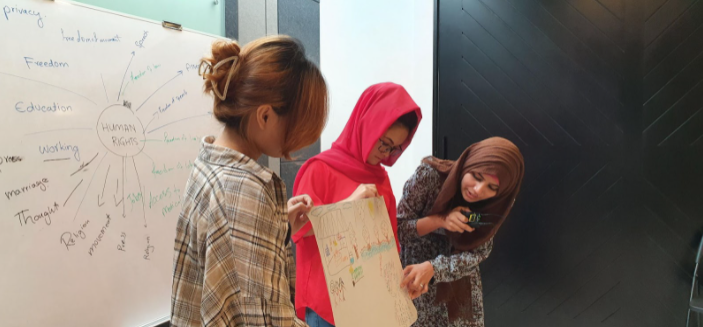
In Mexico, IDC and its partner SOS Children’s Villages in Comitán, Chiapas have engaged young people from migrant communities in leadership training and activities, piloting methodology adapted from IDC’s Community Leadership Curriculum. IDC also worked with partners to support migrant children to create video documentaries of their own experiences and hopes for the future.
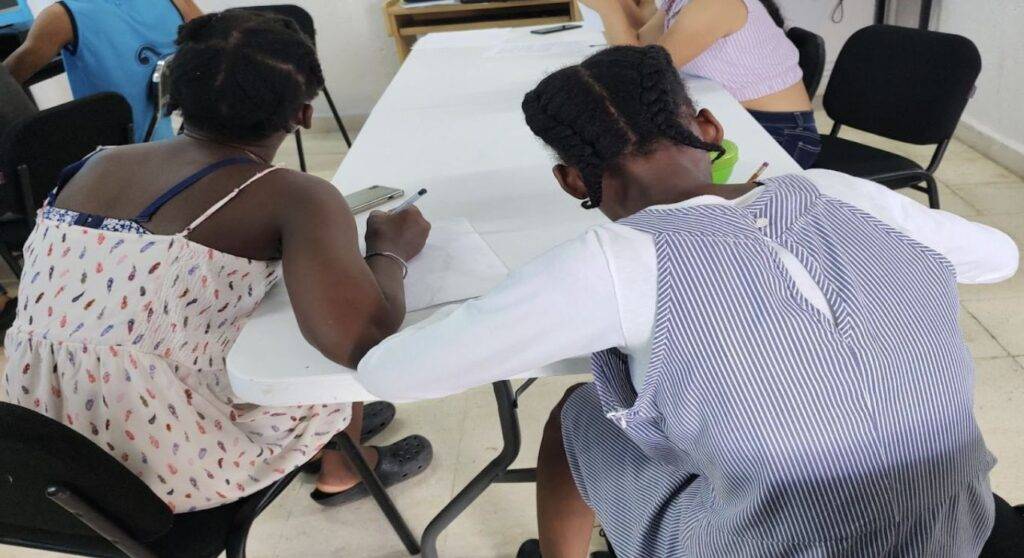
Grounded, community-based efforts like this, alongside coordinated advocacy strategies to amplify impact, have been the heart of IDC’s work to end child immigration detention worldwide. While we have taken the lead on global events and international outcomes on child detention, we have also worked side by side with regional partners and national coalitions to develop tailored and transformative strategies that make a real impact on the ground. This year, IDC re-commits to our ten year, long-term effort to end the immigration detention of children all over the world, in line with our broad vision of ending immigration detention for all.
Written by Gisele Bonnici, IDC Americas Regional Coordinator and Mia-lia Boua Kiernan, IDC Communications and Engagement Coordinator